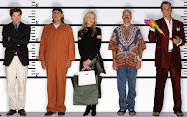Helen Fisher, author of Anatomy of Love and Why We Love: The Nature and Chemistry of Romantic Love, is an anthropologist who studies gender differences and the evolution of human emotions. In the talk above, she investigates romantic love -- its evolution, its biochemical foundations, and its importance to human society -- and how it informs and transforms the way we understand ourselves. From Ted.com:
"Fisher describes love as a universal human drive (stronger than the sex drive; stronger than thirst or hunger; stronger perhaps than the will to live), and her many areas of inquiry shed light on timeless human mysteries, like why we choose one partner over another. Almost unique among scientists, Fisher explores the science of love without losing a sense of romance: Her work frequently invokes poetry, literature and art -- along with scientific findings -- helping us appreciate our love affair with love itself."The first section of her talk looks at the brain in love (why people would die for love), and then she continues to discuss suffering and elation in romantic love, our addiction to love, and how we choose who we love. Personally, I really enjoyed this talk because she intertwines myths and poems into her discussion, and she makes Walt Whitman seem crazy for wanting to die for love. It is strange that in every culture people would die for love, especially since people fall out of love so easily. I would've died for you last week when I loved you, but not this week because you broke up with me. Umm... (February 2008, 15:56)
Keith Barry does brain magic, which includes driving a car at full speed blindfolded, hypnosis/mind control and mindreading. The most interesting "brain magic" for me involve a trick with a glass Coke bottle and a game of "where's the spike beneath the paper cups?" He's quite charismatic, and although some of his tricks aren't exactly awe-inspiring, they are interesting. I would not trust someone who crushes my hand on cups that potentially have a spike in them. Why his volunteer trusted him is the most intriguing part... (February 2004, 19:49)









.jpg)


No comments:
Post a Comment